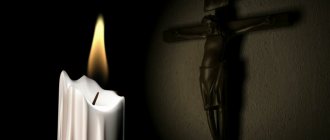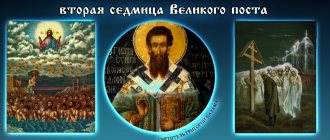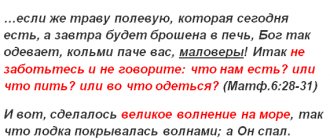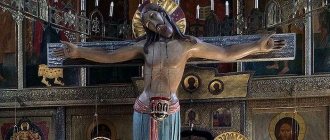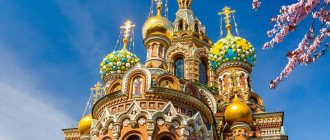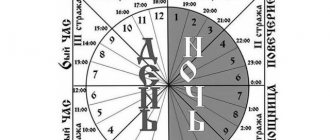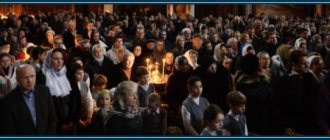The first week of Great Lent is the strictest. The main purpose of observing Lent is preparation for one of the main Christian holidays - the Holy Resurrection of Christ.
This period is usually marked by special prayers of repentance, recognition of the sacrifice and remission of sins, which became possible after the death of Jesus Christ on the cross and subsequent resurrection from the dead. Fasting is a reminder of the 40-day fast of Jesus Christ, when he was alone in desert lands.
The longest Christian fast of the year is established 7 weeks before the start of Easter.
Weeks are called intervals of 7 days, respectively. On these days, special services are held, each corresponding to its own week.
What is the first week
The first week of Lent opens. This is the strictest time . During it, a turning point occurs in a person’s consciousness and way of life. Diet and habits change. All this, of course, is not easy. Anyone who went to church once a year tries to go every week. Anyone who attended services every Sunday goes to church every day to read the Canon of Crete.
A person tries to limit his vision, language and hearing, does not watch TV, does not go on the Internet unnecessarily, does not talk about trifles, does not judge, does not gossip, and is afraid of offending someone by word or deed. In general, he tries to take care of himself and not sin.
The diet also changes completely. The following are excluded from the diet:
- meat products (meat, sausage, frankfurters, cutlets, etc.);
- dairy products (milk, kefir, butter, cheese, cottage cheese, etc.);
- eggs;
- fish.
All animal products should not be eaten. You can eat grains, pasta, vegetables, fruits, legumes and seafood in moderation without overeating. Here culinary abilities are dictated by a person’s imagination. Some people replace meat with soy products, which can now be found in abundance on the shelves. Lenten dumplings, dumplings, and Lenten pastries are also popular. Various lean sauces make the taste of dishes fuller and more interesting.
Russian Orthodox Church
print version
The beginning of Lent.
Calendar notes:
On Monday, Tuesday, Wednesday and Thursday of the 1st week at Great Compline the Great Canon of St. Andrey Kritsky.
The order of readings, according to the calendar:
On the weekdays of Great Lent, the service is performed according to the Menaion and Triodion, without the Octoechos, except for the Trinity, sedalni and luminaries of the ordinary voice (see appendices of the Triodion).
2. Monday of the 1st week. Sschmch. Theodota, bishop Kyrineisky. The beginning of Lent.
Icon of the Mother of God, called “Sovereign”
(service may be rescheduled for Sunday, March 1). St. Arsenia, bishop Tverskoy.
Note.
The polyeleos service in honor of the icon of the Mother of God, called “Sovereign”, can be postponed to Sunday, March 1 (cf.: Typikon, February 24, 7th Markov chapter)[24].
During Great Lent on weekdays, all services are performed according to the Menaion and the Lenten Triodion. From the Octoechos on weekdays only the Trinity, Sedal and Luminaries of the current voice are taken (see in the appendices to the Lenten Triodion). Liturgy of St. John Chrysostom in the days of St. Lent is not celebrated except on Saturdays and the feasts of the Annunciation of the Most Holy Theotokos and the Entry of the Lord into Jerusalem.
Sample of Matins on Monday, Tuesday, Wednesday, Thursday and Friday of St. Pentecost, if holidays do not occur on these days: February 24, March 9, March 25, temple or polyeleos
Matins
preceded by the daily midnight office. Before the start, it rings - according to custom, 12 strikes on the bell; after the exclamation: “God, gracious to us...” - three great bows with prayer to St. Ephraim the Syrian (so many bows at the Midnight Office occur only on the 1st day of Lent, and on other days - 16).
At the end of the Midnight Office, before Matins, the ringing is, as usual, two bells. The priest, having put on a phelonion[25] and opening the curtain of the royal doors, burns incense in front of the throne in the shape of a cross and proclaims: “Blessed is our God...”[26]. Reader: Trisagion. According to the “Our Father” the priest exclaimed: “For Thine is the Kingdom...”. Reader: “Amen”, “Lord, have mercy” (12). “Glory, even now” - “Come, let us worship...” (three times), psalms 19 and 20, Trisagion. According to “Our Father” there is an exclamation and troparion: “Save, O Lord, Thy people...”. “Glory” - “Ascended to the Cross...”, “And now” - “A terrible representation...”. While reading the psalms, the priest censes the altar and the entire temple, then, returning to the altar, pronounces a small, intense litany: “Have mercy on us, O God...” (with the censer at the throne) and the exclamation: “For He is Merciful...”. Singers: “Amen”, “In the Name of the Lord...”.
The priest, standing before the throne, proclaims: “Glory to the Holy, and Consubstantial, and Life-Giving, and Undivided Trinity...”, while creating a cross with a censer. The Six Psalms are read. (The priest says the morning prayers of the Service Book.) At the end of the Six Psalms, the Great Litany.
Then “Alleluia” in the rising voice of Octoechos (in this case, the 7th), with the verses: “From the night it will morning...” and so on. The singers sing “Hallelujah,” three times for each of the four verses. Then the three Trinity Troparions (see the Triodion appendix).
Note.
In practice, the Trinity troparia are read, and their endings (choruses) are sung.
On Monday, for the first Trinity Troparion, the chorus: “Holy, Holy, Holy art thou, our God, have mercy on us through the intercession of Thy incorporeal ones”; to the second - “Holy, Holy, Holy art thou, our God, through the prayers of all Thy saints have mercy on us”; to the third - “Holy, Holy, Holy art thou, our God, have mercy on us through the Mother of God.” The chorus to the first troparion is special for each day of the week, the choruses to the second and third troparions are constant.
Then the 4th, 5th and 6th kathismas will be sung in verse, divided into three “Glories” and sung in Lenten chant. The verse of kathisma begins with the singing of the “set” choir: “Lord, have mercy” (three times), “Glory”. Reader: “And now,” and reads the kathisma. There are no small litanies for kathismas during the entire Lent, except Saturdays and Weeks (if a holiday occurs, then before the festive sedals the small litany is pronounced).
After the 1st kathisma - the sedalna of the ordinary voice of Octoechos (see the Triodion appendix). If in the Menaion an ordinary saint has a kontakion, then in the sedalny, before the Theotokos, the martyr is sung in the current voice with the refrain: “Wonderful is God in His saints, the God of Israel” (in the appendix of the Triodion it is placed after the sedalny). If an ordinary saint does not have a kontakion in the Menaion, then the martyr is sung according to the 6th song of the canon (then this martyr is omitted in the sedalna).
Note.
In this case, the martyr is sung in sedalny, because in the ordinary service of the Menaion there is a kontakion.
After the 2nd and 3rd kathismas - sedal Triodi (on a row).
According to custom, the choir sings: “Lord, have mercy” (three times), “Glory.” The reader says “And now,” and reads Psalm 50.
The priest (or deacon) on the pulpit says the prayer: “Save, O God, Thy people...” (see at the litany of Great Vespers). Singers: “Lord, have mercy” (12). Priest: “By mercy and generosity...”. Singers: “Amen”, and the canon is sung.
At Lenten Matins there are three canons - from the Menaion (complete) and two three canons from the Triodion.
Three songs consist of: on Monday - from the 1st, 8th and 9th songs; on Tuesday - from the 2nd, 8th and 9th cantos; on Wednesday - from the 3rd, 8th and 9th cantos; on Thursday - from the 4th, 8th and 9th cantos; on Friday - from the 5th, 8th and 9th cantos[27].
Songs that include three songs are sung on 14: the canon of the Menaion with an irmos on 6 (irmos once), then three songs on 8. In addition, the 2nd three song of the Triodion contains one or two troparions that are not included in the number 14; these troparia should be sung with the refrain: “Glory to Thee, our God, glory to Thee.”
Songs in which there are no tripongs are sung in 4, without irmos, i.e. irmos are not included in this count. In the 1st, 4th, 5th and 7th cantos, the irmos precede the singing of the troparions, and in the 3rd (except Wednesday) and 6th they serve as katavasia and are sung only at the end of the troparions. Songs containing three songs certainly end with katavasia - the Irmos of the second three song.
The canon is sung with biblical songs (as presented in the special section Irmologiya - for Lent). The full text of the biblical song is performed only in songs with three songs. (Thus, during the week the entire cycle of Songs of Holy Scripture is sung in its entirety.) In the remaining songs, only the required number of last verses are used as choruses to the troparions.
If there are two saints[28], then in songs with three songs the two canons of the Menaion are sung at 6, by combining two troparions into one in both canons. The Theotokos of the first canon is omitted.
Note.
Both canons of the Menaion are sung on 6 (with the irmos) as follows: the irmos of the canon of the first saint, two troparions of this canon in one, the troparion before the Theotokos (Theotokos is omitted); from the canon of the second saint - two troparions for one, the troparion before the Theotokos and the Theotokos.
The Typikon is silent about the singing of the canons of the two saints in songs without tripongs. According to common practice, both canons of the Menaion are sung at 8[29], preceded by the irmos of the canon of the first saint, which is not included in the count. In the 3rd (except Wednesday) and 6th cantos, the irmos of the first canon of the Menaion is sung at the beginning of the song, and the irmos of the canon of the second saint is sung at the katavasia.
In accordance with the general instructions of the Typikon regarding the rite of singing the canon of Lenten Matins, on Mondays the hymn of the 1st canon will be sung from the verse: “We sing to the Lord...” to “August, like a wall...” (according to Irmologii [30]). After the verse “Augustesh, like a wall...” the Irmos of the Menaion canon is sung.
Singers – verse[31]: “Speech is the enemy...”. Reader[32] – 1st troparion of the canon of the Menaion.
Singers: “Thou hast sent Thy spirit...” The reader is again the 1st troparion[33].
Singers: “Who is like You...” Reader - 2nd troparion.
Singers: “Thou hast stretched out...” Reader - 3rd troparion.
Singers: “Thou hast comforted...” Reader - Theotokos of the canon.
Singers: “Then, after trying...”. Reader – 1st and 2nd troparia[34] of the first three canticle of the Triodion (for one).
Singers: “He will attack nya...”. Reader - 3rd troparion.
Singers: “They will pass Dondezh...”. Reader - 4th troparion.
Singers: “Enter, plant I...”. Reader - Theotokos of the 1st Three Songs.
Singers: “Lord, reign forever and ever...” Reader – 1st Troparion of the 2nd Trisong of the Triodion.
Singers: “And point it at nya...”. Reader - 2nd troparion.
Singers: "Glory." Reader – Trinity: “The unit is simple...”.
Singers: “And now.” Reader – Theotokos: “Let us sing to God’s Holy Mountain...”.
Singers: “Glory to Thee, our God...”. Reader – troparion: “Chariot of fire...”.
Singers: “Glory to Thee, our God...”. Reader – last troparion: “Brashno Adam yade...”.
Then the irmos of the 2nd three-canticle of the Triodion, tone 2: “Come, you people...” is sung at the katavasia.
Note.
Song 2 is not sung on Monday. It will be sung on Tuesdays of Pentecost.
Song 3 (from the Menaion) begins with the singing of biblical verses. Immediately after the chaos of the 1st song, the singers - the verse: “The Lord has ascended to Heaven...”. Reader – 1st troparion of the canon.
Singers - verse: “And he will give strength...”. Reader - 2nd troparion.
Singers: "Glory." Reader - 3rd troparion.
Singers: “And now.” Reader - Theotokos Menaion.
The singers are the irmos of the 3rd song of the Menaion (in this case, the 4th voice: “Thy Church rejoices in You, Christ...”). The difference from the usual performance of the canon is that here the irmos is sung not at the beginning of the song, but at the end of it, covering the song like a katavasia.
According to the 3rd song - small litany. Sedalen of the Hieromartyr, tone 4: “The clothes of the Hierarchy...”. “Glory, even now” - the Mother of God of the Menaion, the same voice: “Unclean thoughts...”.
Canto 4 (from the Menaion). Singers - irmos of the 4th song of the Menaion and the verse: “The Lord my God is my strength...”. Reader - 1st troparion.
Singers - verse: “And it raises you to high...”. Reader - 2nd troparion.
Singers: "Glory." Reader - 3rd troparion.
Singers: “And now.” Reader - Theotokos.
Song 5 (from the Menaion). Singers - irmos of the 5th song and verse: “The dead will be resurrected...”. Reader - 1st troparion.
Singers - verse: “Bo dew, even from You...”. Reader - 2nd troparion.
Singers: "Glory." Reader - 3rd troparion.
Singers: “And now.” Reader - Theotokos.
Song 6 (from the Menaion) is versed in the same way as the 3rd. Immediately after the 5th hymn of the Theotokos, the verse is sung: “Those who keep vain things...”. Reader - 1st troparion.
Singers - verse: “I am with a voice of praise...”. Reader - 2nd troparion.
Singers: "Glory." Reader - 3rd troparion.
Singers: “And now.” Reader - Theotokos.
The singers are the irmos of the 6th song of the Menaion canon for katavasia (in this case, the 4th voice: “I will devour Ti with a voice of praise...”).
According to the 6th song - small litany. Kontakion and Ikos Menaion (if any). In this case - the kontakion of the holy martyr, voice 3: “Thou hast rebuked the evil of the sea...”.
Note.
If in the Menaion there is no kontakion for an ordinary saint, then according to the 6th canto the martyr Octoechos is sung (see in the sedals on the 1st verse in the appendix of the Triodion)[35].
Song 7 (from the Menaion). Singers - irmos of the 7th song of the Menaion and the verse: “Blessed art thou on the Throne of Glory...”. Reader - 1st troparion.
Singers: “Blessed are you in the firmament...” Reader - 2nd troparion.
Singers: "Glory." Reader - 3rd troparion.
Singers: “And now.” Reader - Theotokos.
Song 8 is sung like Song 1. The choir or reader will recite the verses of the 8th canto in a row, from the verse: “Bless, all the works of the Lord...” and to: “Bless, the fire and the barrage...”. After this verse, the irmos of the canon from the Menaion is sung and the verse: “Bless, dew and frost...”. Reader – 1st troparion of the Menaion.
Singers: “Bless, Slans...”. The reader is again the 1st troparion[36].
Singers: “Bless, light and darkness...” Reader - 2nd troparion.
Singers: “Bless the earth...” Reader - 3rd troparion.
Singers: “Bless you, sources...”. Reader - Theotokos Menaion.
Singers: “Bless all the birds of the air...” Reader – 1st Troparion of the 1st Trisong of Triodion.
Singers: “Bless, sons...”. Reader - 2nd troparion.
Singers: “Bless, priests...” Reader - 3rd troparion.
Singers: “Bless, darlings...”. Reader - Theotokos of the 1st Three Songs.
Singers: “Bless, Ananias, Azariah, Misail...” Reader – 1st Troparion of the 2nd Trisong.
Singers: “Bless you, apostles...” Reader - 2nd troparion.
Singers: “Let us bless the Father and the Son and the Holy Spirit, the Lord.” Reader - Trinity of the three songs.
Singers: “And now.” Reader - Theotokos of the Three Songs.
Singers: “Glory to Thee, our God, glory to Thee.” The reader is the troparion of the three song.
Singers: “We praise, we bless...” and the irmos of the 2nd three-canticle for katavasia, the 2nd voice: “Of ancient times it was watered...”.
On the 9th song the usual censing is performed. We sing “The Most Honest” (with a bow at each chorus). Then the irmos of the 9th song from the Menaion and the verse: “Blessed is the Lord God of Israel...”. Reader – 1st troparion from the canon of the Menaion.
Singers – verse: “And raise up the horn of salvation for us...”. The reader is again the 1st troparion (in this case, the 2nd troparion)[37].
Singers: “Like a verb...”. Reader – 2nd troparion (in this case – 3rd troparion).
Singers: “Salvation from the enemy...”. Reader – 3rd troparion (in this case – 4th troparion).
Singers: “Do mercy...”. Reader – Theotokos of the Menaion canon.
Singers: “The oath, they swear by it...”. Reader – 1st Troparion of the 1st Trisong.
Singers: “Serve Him...” Reader - 2nd troparion.
Singers: “And you, boy...”. Reader - 3rd troparion.
Singers: “Give reason...”. Reader - Theotokos of the 1st Three Songs.
Singers: “Visit us in them...”. Reader – 1st Troparion of the 2nd Trisong.
Singers: “Guide our feet...” Reader - 2nd troparion.
Singers: "Glory." Reader - Trinity of the three songs.
Singers: “And now.” Reader - Theotokos of the Three Songs.
Singers: “Glory to Thee, our God, glory to Thee.” The reader is the last troparion of the three canticle.
Singers - irmos of the 2nd three-canticle for katavasia, voice 2: “Prenatural to the flesh...”.
Then - “It is worthy to eat” (bow). Small Litany. The Svetilen is Trinity of the current voice (see the Triodion appendix). According to custom, the endings of the luminary are sung according to the chant of the Trinity Troparions. After the 1st performance of the luminary - ending: “The intercession of Thy incorporeal ones, and save me” (on Monday). “Glory” is the same luminary, with the ending: “Through the prayers, O Lord, of Thy saints, and save me,” “And now” – again the same luminary, with the ending: “Through the prayers, O Lord, of the Mother of God, and save me.” (The first ending of the luminary is special for each day of the week, the second and third endings are constant.)
Note.
In the luminaries of the 6th tone, instead of the ending, the beginning changes (for example, the first on Monday: “The intercession, O Lord, of Thy Bodiless Ones, send down Thy ever-present light to our souls,” etc.).
After the luminary reader - psalms of praise: “Praise the Lord from Heaven...” and other verses (according to custom). After the psalms - “Glory, even now”, “Glory befits you...”, and further - “Glory to Thee, who showed us the light”, “Glory to God in the highest...” (daily doxology).
If there happen to be two saints in a row under the number in the Menaion, the stichera of one saint (placed on “Lord, I cried”) are sung at Vespers, and the other – at praises, at 4 (the first stichera twice). “Glory [38], and now” - Theotokos (on Wednesday and Friday - Theotokos) according to the voice of the stichera on the row or Theotokos from the appendix of the Menaion according to the voice of the stichera, from the least. After the Theotokos - “Glory to Thee, who showed us the light”, “Glory to God in the highest...” (daily doxology). Thus, after the stichera “Glory, even now,” “Glory befits you...” is not read.
The daily doxology is read[39]. Litany of petition, and prayer of adoration.
The poem contains the stichera of the Triodion, tone 5 (with the usual choruses). “Glory, even now” - Theotokos Triodion, the same voice: “You, Mother of God...”.
Note.
If a saint has a morning stichera on “Glory”, then “Glory” is the saint’s, “And now” is the Theotokos in the voice of “Glory”, from the lesser ones, from the additional part of the Menaion, and on Wednesday and Friday the Holy Cross is the Menaion in a row. If there is no glorifier in the Menaion, then “Glory, even now” is the Theotokos Triodi (on the row).
Read “Good is...” (twice) and the Trisagion. According to the “Our Father” and the exclamation: “For Thy is the Kingdom...” the troparion of the Book of Hours says: “In the temple stands Thy glory...”. “Lord, have mercy” (40). “Glory, even now” - “More honorable Cherub...”. "In the name of the Lord..." Priest in front of the royal doors: “Blessed are you...” The prayer says: “Heavenly King...”. Priest - prayer to St. Ephraim the Syrian: “Lord and Master of my life...” and 3 great bows; 12 small bows with the prayer: “God, cleanse me, a sinner,” and again – “Lord and Master of my life...” and one great bow. Reader: “Amen,” and without dismissal of Matins the 1st hour is read. The dismissal of Matins takes place after the 1st hour. The priest, according to custom, returns to the altar, closes the curtain and removes the phelonion.
Sample of the first hour on Monday, Tuesday, Wednesday, Thursday and Friday St. Pentecostal
At 1 o'clock
- after three psalms and “Alleluia” (three times), on Tuesday, Wednesday and Thursday an ordinary kathisma will be sung[40]. Before it is the “set”: “Lord, have mercy” (three times), “Glory, even now” - is read, not sung[41]. At Slava, the kathisma is interrupted by singing, as at Matins, that is, the “opos” of the kathisma are sung.
After kathisma (and if it does not happen, then after the psalms of the hour) the reader: “Glory, even now,” “Alleluia” (three times), “Lord, have mercy” (three times). Then the priest (or “ordained reader”), standing in front of the royal doors, sings the troparion of the hour, in the 6th tone: “In the morning hear my voice, my King and my God,” and bows to the ground. The singers are the same troparion. Priest (or “accomplished reader”) - verse: “Inspire my words, O Lord, understand my calling.” Singers: “Tomorrow hear my voice...” Priest (or “accomplished reader”): “I will pray to You, Lord.” Singers: “Tomorrow hear my voice...” When the priest (or “ordained reader”) pronounces a troparion or verse, the singers and people bow; when the singers sing, then the priest (or the “accomplished reader”) bows[42]. Priest (or “accomplished reader”): “Glory” (no bow). Reader: “And now” – Theotokos of the hour: “What shall we call Thee...”.
Then the singers: “Direct my steps according to Thy word, and let not all iniquity possess me” (twice). The following verses are also sung (twice): “Deliver me from the slander of men, and I will keep Your commandments”; “Make Thy face shine upon Thy servant, and teach me Thy justification.” Then: “Let my mouth be filled with Thy praise, O Lord, that I may sing Thy glory, Thy splendor all the day long” (three times).
Note.
The verses of the hour (special troparia of the Book of Hours after the Theotokos hour and before the Trisagion) are sung only at the 1st hour; at other hours they are read.
Reader - Trisagion. According to the “Our Father” the priest exclaimed: “For Thine is the Kingdom...”. Reader - Theotokos of the day (on Monday, Tuesday and Thursday - “The Glorious Mother of God ..."; on Wednesday and Friday - “Soon before ..."). “Lord, have mercy” (40). Prayer: “Likewise at all times...” “Lord, have mercy” (three times), “Glory, and now” - “The most honorable Cherub...”, “In the Name of the Lord...”. Priest (on salt): “God, be generous to us...” Reader: "Amen." Priest: “Lord and Master of my life...”, with 16 bows. The final Trisagion is read. According to the “Our Father” the priest - an exclamation. Reader: “Amen”, “Lord, have mercy” (12). Priest: “Christ, the True Light...”. Singers (according to custom): “To the elected Voivode...”. Priest: “Glory to Thee, O Christ God...” Singers: “Glory, even now,” “Lord, have mercy” (three times), “Bless.” The holiday is great and perennial.
According to the Charter, at the end of the 1st hour, a lithium for the dead is performed, which, according to the Typikon, is an integral part of the morning service. The funeral lithium at the end of the 1st hour is prescribed by the Typikon on all weekdays. There is no litiya on Saturday, Sunday and holidays. The same litia is appointed by the Rule after the dismissal of Vespers in the event that Vespers is not combined with the Liturgy of the Presanctified Gifts, that is, on Monday, Tuesday and Thursday. (On Wednesday and Friday, Vespers is served in conjunction with the Liturgy of the Presanctified Gifts.) There is no litany for the departed after Vespers on Monday, which is served on the evening of the Week.
Thus, during the period of the Holy Pentecost, the Typikon appoints litias at the end of the 1st hour and after the dismissal of Vespers. They differ only in that at the litia, after the 1st hour, the reading of the Announcements of St. Theodore the Studite (on Wednesday and Friday): “And the Announcements of our venerable father Theodore the Studite are honored from the primate or from the ecclesiarch, as prescribed, that is, on Wednesday and Friday” (see: Lenten Triodion, service on Monday of the 1st week of Great Lent) [ 43].
In practice, lithium is performed as follows.
A funeral table (tetrapod) is set up in advance in the vestibule (or in the appropriate place in the temple). At the end of the 1st hour or Vespers, the priest takes the censer and, preceded by two priests, goes out into the vestibule through the northern gate (the royal doors and the curtain do not open). He is followed by the choir and worshipers while singing the self-voiced stichera of the temple. The stichera is taken from the service of the holiday or saint to which the chapel where the service is performed is dedicated. This could be a stichera based on Psalm 50 or one of the lithium stichera. (If the saint does not have a holiday sign, sixfold or doxological, and his service does not contain the specified hymns, the stichera is taken from “Lord, I cried” or from another cycle of stichera.)
The priest exclaims: “Blessed is our God...”. Singers: "Amen." Reader: Trisagion. According to the “Our Father” the priest - an exclamation. Singers: “Amen” and troparia, tone 4: “With the spirits of the righteous...”, “In Thy chamber, O Lord...”. “Glory” - “Thou art God...”, “And now” - “One Pure One...”. The priest (with a censer) pronounces a special funeral litany: “Have mercy on us, O God...”, “We still pray for repose...”, “For the Lord God...”, “The mercy of God...”. “Let us pray to the Lord.” Singers: “Lord, have mercy.” The priest reads a secret[44] prayer: “God of spirits...” and utters the exclamation: “For You are the Resurrection...”. “Glory to Thee, O Christ God...”, etc. Dismissal: “Risen from the dead...”. Upon dismissal, a special verse is said: “Your memory is eternal, our blessed fathers and brethren, in everlasting remembrance” (three times). During this verse, the priest burns tetrapods around (three times), then says: “May God bless and give them rest and have mercy on us, for He is Good and Lover of Mankind” (once).
Sample of the 3rd, 6th and 9th hours on Monday, Tuesday, Wednesday, Thursday and Friday St. Pentecostal
The Lenten hours of the 3rd, 6th and 9th are usually celebrated together with the Fine Hours and Vespers (if the Liturgy of the Presanctified Gifts is not celebrated). According to tradition, before each hour the bell is struck 3, 6 or 9 times, respectively, before symbolic - 12 times, before vespers - two bells are rung.
3rd hour
. The priest in the stole, in front of the royal doors (the curtain does not open), having made three bows (from the waist), pronounces the exclamation: “Blessed is our God...”. Reader: “Amen”, “Glory to Thee, our God...” and other sequences of the 3rd hour, as usual. At the end of the third psalm - “Glory, and now”, “Alleluia” - the ordinary (on Monday - 7th) kathisma, divided into three “Glories” (the reading order is the same as indicated in the 1st hour), will be sung. After the kathisma, the priest (or “ordained reader”) in front of the royal doors sings the troparion of the hour, tone 6: “Lord, Who is Your Most Holy Spirit...” and the verses: “Create a pure heart in me, O God...”; “Cast me not away from Thy presence...” After performing the troparion and bows, the priest (or “reader”): “Glory.” Reader: “And now” – Theotokos of the hour: “O Mother of God, You are the true vine...”. After the prayer “And for all time...” the priest (on the sole) utters the exclamation: “God, be generous to us...”[45]. Reader: "Amen." The priest reads the prayer to St. Ephraim the Syrian with 16 bows. Prayer: “Sovereign God...”, and the 6th hour begins.
6th hour
. Psalms and kathisma (on Monday - the 8th) are read in the same order as at the 3rd hour. After the kathisma, as at the 3rd hour, the troparion of the hour is sung, tone 2: “And on the sixth day and hour...”. Poems: “Inspire, O God, my prayer...”; “I cried to God...” "Glory". Reader: “And now” – Theotokos of the hour: “As the imams did not have boldness...”. Troparion of prophecy (from Triodion)[46]. “Glory, even now” is the same troparion. Priest (or deacon): “Let us attend.” Reader – prokeimenon (Triodion), tone 4: “The Lord knows the way of the righteous, and the way of the wicked will perish,” with verse. Priest (or deacon): “Wisdom.” Reader: “Reading the prophecies of Isaiah.” Priest (or deacon): “Let us attend.” The parody of the Triodion is read. At the end of the reading of the parimia, the priest (or deacon): “Let us hear.” Reader – prokeimenon (Triodion), tone 7: “Work for the Lord with fear and rejoice in Him with trembling,” with verse. After singing the prokeemna, the reader: “Soon let us be preceded by...”, Trisagion. According to the “Our Father” the priest - an exclamation. Reader - troparion: “Thou hast made salvation...”, “Glory” - “To Thy Most Pure Image...”. On “And Now” - on Monday, Tuesday and Thursday - “The Source of Mercy is the Source...”; on Wednesday and Friday – Holy Cross: “Glorified art thou, O Virgin Mother of God...”. “Lord, have mercy” (40). Prayer: “Likewise at all times...” “Lord, have mercy” (three times), “Glory, even now,” “The most honorable Cherub...”, “In the name of the Lord...”. Priest (on the salt): “God, be generous to us...” and reads the prayer to St. Ephraim the Syrian with 16 bows. Prayer: “God and the Lord of hosts...”, and the 9th hour begins.
9th hour
performed in the same way as the previous ones (on Monday at the 9th hour - the 9th kathisma)[47]. Troparion of the 9th hour, tone 8: “And at the ninth hour...”. Poems: “Let my prayer come near...”; “May my request be accepted...” At the end of the 9th hour, after “God, show mercy to us...”, the priest reads the prayer of St. Ephraim the Syrian with three great bows[48]. Prayer: “Sovereign, Lord Jesus Christ, our God...”, and they begin with pictures.
Sample of performing fine arts on Monday, Tuesday and Thursday of St. Pentecostal
Fine
. After the prayer of the 9th hour, the priest, according to tradition, puts on a phelonion, as at Matins[49]. According to custom, the curtain of the royal gates is opened. The choir sings: “In Your Kingdom, remember us, O Lord, when You come in Your Kingdom.” Then the blessed verses are sung with the refrain for each verse: “Remember us, Lord, when You come in Your Kingdom.” At the end, on “Glory” - “Remember us, Lord...”, on “And now” - “Remember us, Lord...”. Then slowly and loudly (with three bows to the ground): “Remember us, Lord, when you come in Your Kingdom,” “Remember us, Master, when you come in Your Kingdom,” “Remember us, Holy One, when you come in Your Kingdom.” Reader: “Heavenly Face...”. Verse: “Come to Him and be enlightened...”, “The Face of Heaven...”, “Glory” - “The Face of the Holy Angels and Archangels...”, “And now” - “I Believe...”, “Weaken, forsake...”, “Our Father " Priest - exclamation: “For Thine is the Kingdom...”.
Kontakia on figurative ones:
In the Church of the Lord (on Monday, Tuesday, Thursday) - kontakion of the temple, kontakion of the day (on Thursday - two), kontakion of the ordinary Saint Menaion (if there is one). “Glory” - “Rest with the saints...”, “And now” - “Representation of Christians...”.
In the Church of the Mother of God there is a kontakion of the day (on Thursday - two), a kontakion of the ordinary Saint Menaion (if there is one). “Glory” - “Rest with the saints...”, “And now” - the kontakion of the temple.
In the temple of the saint - kontakion of the day (on Thursday - two), kontakion of the temple, kontakion of the ordinary saint of Menaia (if there is one). “Glory” - “Rest with the saints...”, “And now” - “Representation of Christians...”.
Note.
On Tuesday one should not recite the kontakion of the Church of the Baptist, and on Thursday - the kontakion of the Church of the Apostolic or St. Nicholas, since they are replaced by daytime ones.
Note.
If at Matins the kontakion of an ordinary saint was absent, then at the pictorial kontakion it is also not spoken.
“Lord, have mercy” (40), “Glory, even now,” “The most honorable Cherub...”, “In the name of the Lord...”. Priest (in front of the royal doors): “God, show mercy to us...” Reader: "Amen." Priest - prayer to St. Ephraim the Syrian with 16 bows.
Sample of Vespers in St. Lent, when there is no Liturgy of the Presanctified Gifts
Vespers
. Daily Vespers, celebrated on Monday, Tuesday and Thursday of Pentecost, follows the fine ones without an initial exclamation. After bowing with prayer to St. Ephraim the Syrian, placed at the end of the pictorial, reader: “Amen”[50]. “Come, let us worship...” (three times) and the opening psalm: “Bless the Lord, my soul...”. (The priest reads prayers of light in front of the royal doors.) According to the psalm - the great litany. Then the 18th kathisma: “To the Lord, never shall we grieve...” (the reading order is the same as on the clock, but before the 1st “Glory” the “setting” is not pronounced: “Lord, have mercy” (three times) and “ Glory, even now"). After the kathisma there is a small litany.
“Lord, I cried” in the voice of the stichera of the Triodion. While singing the stichera, the usual incense is performed. Stichera on 6: Triodion, tone 2 and tone 5 – 3, and Menaion (martyr Eutropia, Cleonica and Basilisk, from March 3), tone 1 – 3. “Glory, even now” – Theotokos Menaion , the same voice: “Rejoice, strange hearing, Pure One...”.
No entry. Reader (or choir): “Quiet Light...”. The deacon exclaims (at the altar): “Let us attend.” Priest: “Peace to all”[51]. Reader: “And your spirit.” Deacon: “Wisdom. Let's remember." The reader is the prokeimenon of the first parimia of the Triodion, with verse. Deacon: "Wisdom." Reader: “Reading Genesis.” Deacon: “Let’s take a look.” Reading the first parimia. At the end of the parimia, the deacon: “Let us hear.” Reader – prokeimenon of the second parimia of the Triodion, with verse. Deacon: "Wisdom." Reader: “Reading parables.” Deacon: “Let’s take a look.” Reading the second parimia.
Note.
In all St. At Lent of Vespers the following readings are read: the first parimia is from Genesis, the second is from the book of Proverbs.
At the end of the parimia it is read: “Grant, Lord...”. Litany of petition, and prayer of adoration.
Upon exclamation, the singers sing stichera on the stichera from the Triodion, voice 3 (with the usual choruses). “Glory, even now” - the Theotokos Triodion, the same voice: “Theotokos, Intercession of all...”.
After the stichera it is read: “Now you let go,” the Trisagion. According to the “Our Father” the priest exclaims (in soleya): “For Thine is the Kingdom...”. Singers: "Amen." And they sing the troparia, tone 4: “To the Virgin Mary...” (bow). “Glory” - “To the Baptist of Christ...” (bow), “And now” - “Pray for us...” (bow). Then - “Under Your grace...” (without bowing). Reader: “Lord, have mercy” (40), “Glory, even now,” “The most honorable Cherub...”, “In the Name of the Lord...”. Priest: “Blessed be he...” (on the salt). The prayer is read: “Heavenly King...”. Priest - prayer to St. Ephraim the Syrian: “Lord and Master of my life...”, and we make the usual bows (16). The priest returns to the altar. The final Trisagion is read. According to the “Our Father” the priest - an exclamation. Reader: “Amen”, “Lord, have mercy” (12). Prayer: “All Holy Trinity...” “Be the name of the Lord...” (three times), “Glory, even now,” Psalm 33: “I will bless the Lord at all times...” (in full). Priest (or deacon): “Wisdom.” Singers: “It is worthy to eat...” to the words: “and the Mother of our God” (inclusive). Priest: “Most Holy Theotokos, save us.” Singers: “The most honorable Cherub...”. Priest: “Glory to Thee, O Christ God...” Singers: “Glory, even now,” “Lord, have mercy” (three times), “Bless.” Priest is a great holiday on which the saints of the next day are remembered (in this case, March 3). Singers are perennial. The curtain of the royal gates closes. A funeral litany is being held.
Great Compline
.
During Great Lent, on the evening of those days when there was no full Liturgy (with the exception of Wednesday and Friday evenings of the 5th week), Great Compline is always celebrated. Great Compline is served separately from Vespers.
On Monday - Thursday of the 1st week at Great Compline the Great Canon of St. Andrey Kritsky.
Before Compline the bell is rung 12 times. The priest in the stole, having made three bows in front of the royal doors (with the curtain closed), proclaims: “Blessed is our God...”. Reader: “Amen”, “Glory to Thee, our God, glory to Thee”, “Heavenly King”, Trisagion. According to the “Our Father” the priest exclaimed: “For Thine is the Kingdom...”. Reader: “Amen”, “Lord, have mercy” (12), “Glory, even now”[52], “Come, let us worship...” (three times) and Psalm 69: “God, come to my help...”.
Note.
This psalm is read at the beginning of Compline only in the first four days of the 1st week of Great Lent in connection with the singing of the Great Canon of St. Andrey Kritsky. On other days it is read in its place - after the prayer “Master, God, Father Almighty...”.
According to tradition, during the reading of the psalm, the priest in the stole goes to the middle of the temple, where there is a lectern with the prepared text of the Great Canon of St. Andrey Kritsky.
At the end of the psalm, the choir sings the irmos: “Helper and Patron...”, and then follows the canon (irmos twice, troparia as many as there are). The singers sing irmos and choruses[53]. Litany and katavasia are not allowed. According to the 6th song - “Lord, have mercy” (three times), “Glory, and now”, and the kontakion of the Great Canon, voice 6: “My soul, my soul...”. According to the 9th canto, the irmos is repeated: “Semless conception...” (and bow).
At the end of the canon, Compline continues from the psalm “Sometimes to call...”. After Psalm 90 - singing (according to the Rule, antiphonal): “God is with us...” with the refrain: “As God is with us” for each verse. After the verse “Father of the next century” and the chorus “For God is with us,” the first face sings the first verse: “God is with us...” (with chorus), then it is sung (by both faces): “God is with us, understand, pagans, and repent , as if God is with us.” Then “Glory” is the first face: “God is with us...”, “And now” is the second face: “God is with us...”[54]. And in conclusion - both faces: “For God is with us.”
After “God is with us...” - the troparion: “The day has passed, I give thanks...”. “Glory” - “The day has passed, I will sing praises...”, “And now” - “The day has passed, I will sing songs...”, “The immaterial nature of the cherubim...” and “I believe...”[55].
After “I Believe...” “prayer verses” are sung[56].
Note.
“I believe in One God... in a low voice. The same painted face: Most Holy Lady Theotokos, pray for us... And another face bows. And I rise up to another face and answer, and the first face bows. The same applies to all other prayer verses. When we say: God, cleanse me, a sinner... three times, we eat both faces equally; and bows 3" (Typikon, Monday of Great Lent, Compline).
According to tradition, the priest leaves the altar and chants in front of the royal doors: “Most Holy Lady Theotokos, pray for us sinners” (bow)[57].
“All the Heavenly Powers of the saints Angel and Archangel, pray for us sinners” (bow).
“Holy John, Prophet and Forerunner and Baptist of our Lord Jesus Christ, pray for us sinners” (bow).
“Holy, glorious apostles, prophets and martyrs, and all saints, pray for us sinners” (bow).
“Our reverend and God-bearing fathers, shepherd and teacher of the universe, pray for us sinners” (bow).
A verse mentioning a temple saint (bow).
“Invincible, and incomprehensible, and the Divine power of the Honest and Life-giving Cross, do not abandon us sinners” (bow).
“God, cleanse us sinners” (bow).
“God, cleanse us sinners and have mercy on us” (bow)[58].
Then the reader reads the Trisagion (this Trisagion is called first in the rite of Great Compline).
According to the “Our Father” and the exclamation of the priest, we sing the troparia “with great voice and sweet singing”: on Monday and Wednesday - in the 2nd tone: “Illuminate my eyes, O Christ God...”. “Glory” - “Be the protector of my soul, O God...”, “And now” - “As imams are not bold...”. On Tuesday and Thursday - on the 8th tone: “The invisible enemy of mine is vigilance...”; verse: “Look and hear me, O Lord my God...”; “How terrible is Your judgment, O Lord...” “Glory” - “Give me tears, O God...”, “And now” - “Unashamed, Mother of God, hope...”. “Lord, have mercy” (40). "In the name of the Lord..." Priest: “Through the prayers of our holy fathers...” Prayer to St. Basil the Great: “Lord, Lord...”[59].
“Come, let us worship...”, Psalm 50, Psalm 101, prayer of King Manasseh and the Trisagion (this Trisagion is called the second in the Typikon). According to the “Our Father” and the exclamation of the priest, the singing of the troparions, tone 6: “Have mercy on us, Lord...”. “Glory” - “Lord, have mercy on us...”, “And now” - “The doors of mercy...”. Reader: “Lord, have mercy” (40). “Glory, even now” - “Most honorable”, “In the name of the Lord...”. Priest: “Through the prayers of our holy fathers...” Prayer: “Sovereign God Father...”[60].
“Come, let us worship...”
Note.
Further, except for the first four days of Lent, Psalm 69 is read: “God, come to my help...”. On Monday - Thursday of the 1st week this psalm is omitted here, as it is read at the beginning of Compline.
Psalm 142: “Lord, hear my prayer...”, daily doxology: “Glory to God in the highest...”.
Note.
On the weekdays of St. Forty days, except for the first four days of the 1st week, after “Glory to God in the highest...” there is a canon of the Theotokos Octoechos and a canon (with stichera) of an ordinary saint, and at the end of them - “It is worthy to eat...”. For the order of singing services at Compline, see March 10, Tuesday of the 2nd week of Great Lent.
Then the reader reads the Trisagion (this Trisagion is called the third in the rite of Great Compline). According to the “Our Father” and the exclamation of the priest, we sing “in a loud voice and inertly” (i.e. loudly and slowly), in the 6th tone: “Lord Almighty, be with us...”. This chant with five verses of praise is sung, according to the Rule, antiphonally. After completing five verses, the first verse and the troparion are repeated. Then: “Glory” - “Gosp”
← previous day next day →
The meaning of the first week
But you shouldn’t get carried away with preparing the Lenten table, because that’s not the point of fasting at all. The main thing is prayer and abstinence in everything. This leads to repentance , a feeling of the presence of God, and correction of life. Some fasters in the first week, the strictest, eat only bread and water. Archpriest Andrei Tkachev encourages everyone to taste the bread and water during Lent. But it is worth doing this only for the sake of Christ. Fasting is a kind of martyrdom that a person suffers spontaneously.
The main goal of fasting is to abstain the soul from lustful thoughts, condemnation, “the lust of the eyes, the lust of the flesh and the pride of life,” according to the apostle, i.e. alienation from the spirit of this world ( 1 John 2:16 ). During Lent, we Christians must become not of this world, not like unbelievers. There should be a visible contrast between Orthodox fasting people and non-church people. And this should not be expressed in the arrogance and pride of the Pharisees. We must become like fireflies, like truly “the church of the living God” ( 2 Cor. 6:16 ).
All goals are used to achieve this: frequent visits to church, participation in the Sacraments of the Church , long prayers, reading the Bible , akathists, canons.
And the result of this fasting should be the cleansing of the soul from sins through repentance, complete correction of life, drawing closer to God and uniting with Him in spirit. What could be more beautiful! And this is the main goal of Great Lent and the first week in particular.
We need all this for the salvation of the soul and a worthy meeting of the most important holiday - the Holy Resurrection of Christ.
Weeks of Lent in 2022
Each week of Lent has its own name and symbolic meaning.
Lent consists of two parts - Holy Lent (first 6 weeks) and Holy Week (last week - 6 days). Each week of Lent has its own name and symbolic meaning.
- Week 1 (March 15-21, 2022) – Triumph of Orthodoxy
This week Orthodoxy honors the victory in iconoclasm. Particular respect is paid to Empress Theodora of Constantinople, who restored the veneration of icons in the church after a ban in the 8th century.
- Week 2 (March 22-28, 2022) - St. Gregory Palamas
The Church reveres this saint for his teaching and victory in theological disputes. He explained the connection between God and the world.
- Week 3 (March 29 - April 4, 202) - Worship of the Cross
During this period of Lent the Cross is venerated.
- Week 4 (April 5-11, 2022) - St. John Climacus
This saint is presented to all Christians as an example of fasting and spiritual life.
- Week 5 (April 12-18, 2022) - Venerable Mary of Egypt
This saint is revered because she was able to get rid of a depraved life through intense fasting.
- Week 6 (April 19-25, 2022) - Entry of the Lord into Jerusalem, Vai week
The name comes from the word “vay” - palm leaves that were used to cover the path of Christ before entering the city of Jerusalem. In Slavic countries, an alternative to palm branches is willow branches.
- Week 7 (April 26 - May 1, 2022) - Holy Week
This week we remember the last days of the earthly life, suffering, death and burial of Jesus Christ.
May 2, 2022 (Sunday) - Easter .
Who is allowed not to fast?
The Holy Fathers never emphasized the physical side of fasting. The main thing is not food restriction, but cleansing the soul from passions. The body must only serve this purpose. As the saint said: the body is like a donkey; if you don’t feed it enough, it won’t make it to the Kingdom of Heaven, but if you overfeed it, it will go berserk .” We should not serve the body, and it should serve us in order to achieve a higher goal.
Saint Pimen the Great said: “We are not flesh-killers, but passion-killers.” If a person suffers from temporary and chronic diseases, then after consulting a doctor and the blessing of the priest, he can eat certain foods to strengthen his weak body. Father Andrei Tkachev said that if a person, out of weakness, drinks milk during Lent, but reads the Holy Scripture every day, then he is a good person. And if he doesn’t eat anything modest, but is proud, quarrels with his neighbors, and has fun on the Internet, then he is not fasting.
The Apostolic Rules also say that if a wife gives birth during Lent, she may not observe fasting. The same goes for pregnant women, children and the elderly. Fasting for children, according to the same A. Tkachev, means limiting sweets, obeying parents, reading books and forgetting about TV and gadgets.
People who are forced to travel during Lent and work hard jobs may also not observe fasting.
Recommended menu for the first week of Lent:
- On Monday and Tuesday you can’t do anything except water and bread.
- On Wednesday you can eat raw food without oil.
- On Thursday also only raw foods, no butter.
- On Friday you can have boiled food without oil.
- On Saturday and Sunday - food with butter, boiled, wine is allowed.
If, according to the Orthodox calendar, days of veneration of all saints occur during Lent, then it is especially permitted:
- On the first, second and fourth days of the week - hot meals using vegetable oils.
- On the second and fifth days, you are allowed to drink wine and eat hot food without oil.
During the period of Lent, it is generally prohibited to use meat of any animals, milk products and eggs. Products allowed for use: cabbage, beets, carrots and onions, any bean dishes, apples and oranges, a variety of sweet fruit jams, salted vegetables.
With the permission of the confessor, elderly and sick people, pregnant and breastfeeding women may have greater relaxations in the severity of the Lenten table.
Gospel for the Annunciation
The Feast of the Annunciation of the Blessed Virgin Mary is celebrated on April 7 according to the new style.
Gospel of Luke, Chapter 1, verses 24 - 38
24 After these days Elizabeth his wife conceived, and hid herself for five months, and said, 25 Thus did the Lord do unto me in these days, in which he looked upon me, that he might remove from me the reproach of men. 26 And in the sixth month the angel Gabriel was sent from God to a city of Galilee called Nazareth, 27 to a virgin betrothed to a man named Joseph, of the house of David; The name of the Virgin is: Mary. 28 The angel came to her and said: Rejoice, full of grace! The Lord is with You; Blessed are You among women. 29 But when she saw him, she was troubled by his words and wondered what kind of greeting this would be. 30 And the Angel said to Her: Do not be afraid, Mary, for You have found favor with God; 31 And behold, you will conceive in your womb and give birth to a Son, and you will call His name Jesus. 32 He will be great and will be called the Son of the Most High, and the Lord God will give him the throne of His father David; 33 And he will reign over the house of Jacob forever, and his kingdom will have no end. 34 And Mary said to the angel: How will this be, since I do not know the husband? 35 The angel answered and said to her: The Holy Spirit will come upon you, and the power of the Most High will overshadow you; therefore the Holy One who is to be born will be called the Son of God. 36 Here is Elizabeth, your relative, who is called barren, and she conceived a son in her old age, and she is already in her sixth month, 37 for no word will fail with God. 38 Then Mary said, Behold, the handmaid of the Lord; let it be done to me according to your word. And the Angel departed from Her.
The event of the Annunciation is a “restart” of human history. With it begins a new era, which the prophets of the Old Testament were waiting for. The Son of God Jesus Christ comes into the world in the form of a baby. He will be born of a Virgin and free from sin, but not separated from us. This is the new Adam, the personification and fulfillment of the hopes of all humanity, explains priest Anthony Borisov (reading the Gospel in Russian and the full interpretation here).
Brief Life of Saint Gregory Palamas
Saint Gregory Palamas is known as the founder of the doctrine of the Uncreated Light.
The saint was born in the thirteenth century in Asia Minor. His father was a prominent man at the emperor's court, so the boy received an excellent education. They predicted a great career for him, but the young man chose a different path for himself. From childhood, he loved Christ with all his soul and decided to serve Him. He retired to Holy Mount Athos to the Vatopedi monastery and took monastic vows there.
His mother and sisters also became nuns. Gregory became a hieromonk, he diligently acquired inner prayer. He retired to the desert for the whole week, where he studied the unceasing mental and heartfelt Jesus Prayer. And on Sundays he went out to the flock and served. Such hermits and practitioners of inner prayer began to be called “hesychasts.” He succeeded in this teaching and soon even became a teacher of inner prayer.
Gregory gathered a group of monks around him and taught them inner prayer. Soon he was appointed abbot of the Esphigmen Monastery. At that time, his teaching about the Uncreated Light was ridiculed by many and not taken seriously. Then he wrote several theological works in defense of the hesychasts. At the Council in Constantinople there was a clash between him and Varlaam regarding the doctrine of the Light of Tabor. The Uncreated or Tabor Light is the same light that Christ’s disciples saw on Mount Tabor during His Transfiguration . Gregory argued that during internal prayer everyone can be worthy of seeing this light.
The enemy of the human race slandered him, because of which Gregory was convicted and imprisoned for three years. When the patriarch was replaced, the saint was released and elevated to the rank of archbishop. In 1351, at the Council , his doctrine of the Uncreated Light was approved.
The saint died in 1359; before his death, Saint John Chrysostom . Nine years later he was already canonized.
Gospel in memory of Fyodor Tiron
The memory of the Great Martyr Theodore Tiron is celebrated by the church on Saturday of the first week of Great Lent.
Gospel of Mark, Chapter 2, verses 23 - 28, Chapter 3, verses 1 - 5
23 And it happened on the Sabbath that He passed through the sown fields, and His disciples began to pluck the ears of corn along the way. 24 And the Pharisees said to Him: Look, what are they doing on the Sabbath that ought not to be done? 25 He said to them: Have you never read what David did when he had need and was hungry, he and those who were with him? 26 How did he enter into the house of God in the presence of Abiathar the high priest and eat the showbread, which no one was to eat except the priests, and gave it to those who were with him? 27 And he said to them, “The Sabbath is for man, and not man for the Sabbath; 28 Therefore the Son of Man is Lord of the Sabbath.
Gospel of Mark, Chapter 3
01 And he came again to the synagogue; there was a man who had a withered hand. 02 And they watched Him to see if He would heal him on the Sabbath, that they might accuse Him. 03 And he said to the man who had a withered hand, Stand in the middle. 04 And he said to them: Should one do good on the Sabbath, or should one do evil? save your soul or destroy it? But they were silent. 05 And he looked at them with anger, grieving over the hardness of their hearts, and said to the man, “Stretch out your hand.” He stretched out, and his hand became as healthy as the other.
These Gospel passages show that pious talk about keeping the commandments turns out to be nothing more than a cover for hypocrisy. The appearance of Christ in a society with a distorted value system exposes the hypocrisy and unwillingness to show mercy among the Jews. At the same time, the Savior does not condemn his opponents, but only takes pity on them, notes priest Anthony Borisov (reading the Gospel in Russian and the full interpretation here).
